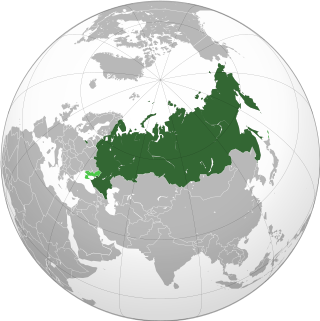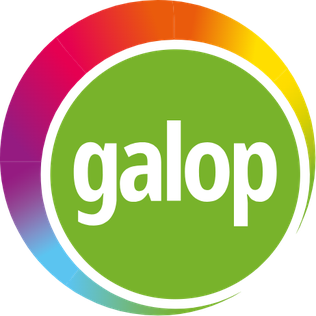Related Research Articles
Lesbian, gay, bisexual, transgender, queer, intersex, and asexual (LGBTQIA+) people frequently experience violence directed toward their sexuality, gender identity, or gender expression. This violence may be enacted by the state, as in laws prescribing punishment for homosexual acts, or by individuals. It may be psychological or physical and motivated by biphobia, gayphobia, homophobia, lesbophobia, aphobia, and transphobia. Influencing factors may be cultural, religious, or political mores and biases.

The Guardian Angels is a non-profit international volunteer organization with the goal of unarmed crime prevention. The Guardian Angels organization was founded on February 13, 1979, in New York City, by Curtis Sliwa. Since then, it has expanded to more than 130 cities and 13 countries worldwide.

LGBTQ culture is a culture shared by lesbian, gay, bisexual, transgender, and queer individuals. It is sometimes referred to as queer culture, while the term gay culture may be used to mean either "LGBT culture" or homosexual culture specifically.

Lesbian, gay, bisexual, and transgender (LGBT) people in Belarus face significant challenges not experienced by non-LGBT residents. Although same-sex sexual activity is legal in Belarus, gay and lesbian rights in the country are otherwise severely limited and homosexuality remains highly stigmatized in Belarusian society. Households headed by same-sex couples are not eligible for the same legal protections available to opposite-sex couples. Belarus provides no anti-discrimination protections for LGBT people, nor does it prohibit hate crimes based on sexual orientation and gender identity. Many Belarusian people believe that homosexuality is a psychiatric illness, and many LGBT persons in Belarus tend to hide their sexual orientation in public. Those who are "out" face harassment, violence and physical abuse.

Lesbian, gay, bisexual, and transgender (LGBTQ) people in Ukraine face legal and social challenges not experienced by non-LGBT individuals; historically, the prevailing social and political attitudes have been intolerant of LGBT people, and strong evidence suggests this attitude remains in parts of the wider society. Since the fall of the Soviet Union and Ukraine's independence in 1991, the Ukrainian LGBT community has gradually become more visible and more organized politically, organizing several LGBT events in Kyiv, Odesa, Kharkiv, and Kryvyi Rih.
Gay-friendly or LGBT-friendly places, policies, people, or institutions are those that are open and welcoming to gay or LGBTQ people. They typically aim to create an environment that is supportive, respectful, and non-judgmental towards the LGBT community. The term "gay-friendly" originated in the late 20th century in North America, as a byproduct of a gradual implementation of gay rights, greater acceptance of LGBT people in society, and the recognition of LGBT people as a distinct consumer group for businesses.

Matt Foreman is an American lesbian, gay, bisexual and transgender (LGBT) rights lawyer and activist with a background in political advocacy and civil rights work. He is Executive Director of the AIDS Legal Referral Panel in San Francisco.

Lesbian, gay, bisexual, and transgender (LGBT) people in Russia face severe challenges not experienced by non-LGBT residents. Although sexual activity between consenting adults of the same sex is legal, homosexuality is disapproved of by most of the population and pro-LGBT advocacy groups are deemed "extremist" and banned. It is illegal for individuals to "promote homosexuality" and same-sex couples and households headed by same-sex couples are ineligible for the legal protections available to opposite-sex couples. Russia provides no anti-discrimination protections for LGBT people and does not have a designation for hate crimes based on sexual orientation and gender identity. Transgender people are not allowed to change their legal gender and all gender-affirming care is banned. There are currently no laws prohibiting discrimination based on gender identity or expression, and recent laws could be used to discriminate against transgender residents.

Lesbian, gay, bisexual and transgender (LGBT) people in Georgia face significant challenges not experienced by non-LGBT residents. However, Georgia is one of the few post-Soviet states that directly prohibits discrimination against all LGBT people in legislation, labor-related or otherwise. Since 2012, Georgian law has considered crimes committed on the grounds of one's sexual orientation or gender identity an aggravating factor in prosecution. The legislative ban on discrimination has been enacted as a part of the Government efforts to bring the country closer to the European Union and make the country's human rights record in line with the demands of Georgia's European and Euro-Atlantic integration.

Scott Douglas Lively is an American activist, author, and attorney, who is the president of Abiding Truth Ministries, an anti-LGBT group based in Temecula, California. He was also a cofounder of Latvia-based group Watchmen on the Walls, state director of the California branch of the American Family Association, and a spokesman for the Oregon Citizens Alliance. He unsuccessfully attempted to be elected as the governor of Massachusetts in both 2014 and 2018.

Lesbian, gay, bisexual, and transgender (LGBT) people in Mongolia face legal and social challenges not experienced by non-LGBT people, though there have been substantial improvements since the 1990s. Homosexuality was criminalised in Mongolia in 1961 through its Criminal Code. Following the Mongolian Revolution of 1990 and the peaceful transition to a democracy, homosexuality was legalised and awareness about LGBT people has become more prevalent. Hate crimes on the basis of sexual orientation and gender identity result in additional legal penalties. Hate speech based on these two categories has been outlawed in the country since 1 July 2017. Households headed by same-sex couples are, however, not eligible for the same legal protections available to opposite-sex couples.
The Russian LGBT Network is a non-governmental LGBT rights organization working for the social acceptance of and protection of the rights of LGBT people in Russia. Founded in 2006, it was reformed into the first Russian inter-regional LGBT rights organization on October 19, 2008. The organization is a member of the International Lesbian and Gay Association (ILGA) and is led by Russian LGBT rights activist Igor Kochetkov.

The history of violence against LGBT people in the United States is made up of assaults on gay men, lesbians, bisexuals, and transgender individuals (LGBTQ), legal responses to such violence, and hate crime statistics in the United States of America. The people who are the targets of such violence are believed to violate heteronormative rules and they are also believed to contravene perceived protocols of gender and sexual roles. People who are perceived to be LGBT may also be targeted for violence. Violence can also occur between couples who are of the same sex, with statistics showing that violence among female same-sex couples is more common than it is among couples of the opposite sex, but male same-sex violence is less common.

Hands Across Hawthorne was a rally held at the Hawthorne Bridge in the American West Coast city of Portland, Oregon, on May 29, 2011. The demonstration was in response to an attack, one week earlier, on Brad Forkner and Christopher Rosevear, a gay male couple who had been holding hands while walking across the bridge. According to the couple and the Portland Police Bureau, a group of five men followed Forkner and Rosevear along the bridge before physically assaulting them. The assault was condemned by Portland's mayor, Sam Adams, and its police chief, Mike Reese, and news of the attack spread throughout the Pacific Northwest and the United States. The attack prompted volunteers from the Q Center, a nonprofit organization that supports the LGBTQ community, to form street patrols as a means of monitoring Portland's downtown area.

The LGBT community in Liverpool, England is one of the largest in the United Kingdom and has a recorded history since the 18th century. Many historic LGBT firsts and pioneering moments in the LGBT rights movement either took place in Liverpool or were achieved by citizens of the city.

For the Purpose of Protecting Children from Information Advocating a Denial of Traditional Family Values, commonly known as the Russian anti-LGBT law or as the Russian anti-gay law, is a law of Russia. It was unanimously passed by the State Duma on 11 June 2013, unanimously passed by the Federation Council on 27 June 2013, and signed into law by President Vladimir Putin on 30 June 2013.

LGBT Foundation is a national charity based in Manchester with a wide portfolio of services. With a history dating back to 1975, it campaigns for a fair and equal society where all lesbian, gay, bisexual and trans (LGBTQ) people are able to reach their full potential. They support over 40,000 people directly every year, and a further 600,000 online. They provide direct services and resources to more LGBT people than any other charity of its kind in the UK.
The presence of LGBTQ officers in law enforcement has a history of controversy. As times have changed, police forces have adapted by adding LGBTQ divisions, officers and committees within their ranks to account for legislation established by governments to protect individuals who previously had little or no voice when it came to laws impacting their own communities.

The ongoing COVID-19 pandemic has highlighted inequities experienced by marginalized populations, and has had a significant impact on the LGBT community. Gay pride events were cancelled or postponed worldwide. More than 220 gay pride celebrations around the world were canceled or postponed in 2020, and in response a Global Pride event was hosted online. LGBTQ+ people also tend to be more likely to have pre-existing health conditions, such as asthma, HIV/AIDS, cancer, or obesity, that would worsen their chances of survival if they became infected with COVID-19. They are also more likely to smoke.

Galop is an LGBT anti-abuse charity and police monitoring group in the United Kingdom that campaigns against domestic abuse, conversion therapy, sexual violence, hate crime, and other forms of discrimination against LGBT people. It runs four national helplines for LGBT survivors of rape and sexual abuse, conversion therapy, domestic abuse and hate crime, and supports LGBT people who have problems with the police or questions about the UK criminal justice system.
References
- 1 2 3 4 5 Terry, Don (1992-04-07). "'Pink Angels' Battle Anti-Gay Crime". The New York Times. ISSN 0362-4331. Archived from the original on 2009-09-15. Retrieved 2024-05-20.
- 1 2 3 Baim, Tracy (2011-07-14). "Looking back in history: Pink Angels take it to the Streets". Windy City Times. Retrieved 2024-05-20.
- 1 2 3 Godfrey, Nnikki; Mahady, Kevin (1992-05-31). "Lifewire: New & of Note". The Press-Courier. Copley News Service. p. 12.
- 1 2 3 Murphy, Michael; Bjorngaard, Brytton (2018-08-06). Living Out Loud: An Introduction to LGBTQ History, Society, and Culture. Routledge. ISBN 978-1-317-27636-4.
- 1 2 de la Croix, Sukie (2016-03-24). "Gay Chicago Rewind March 24-30, 2016". GoPride Chicago (ChicagoPride.com). Retrieved 2024-05-20.
- ↑ "Chicago's Too Much Light Shows Its Pride With 30 Gay Plays, June 26-28". Playbill. 1998-06-26.